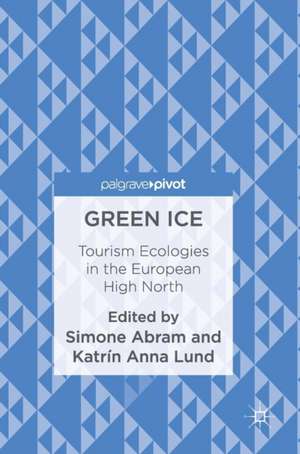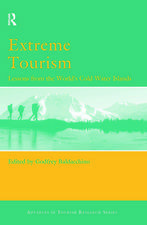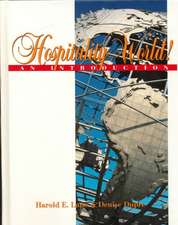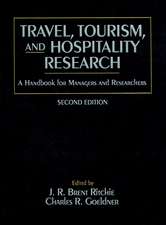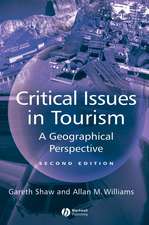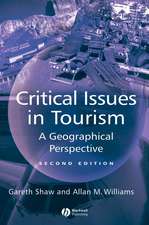Green Ice: Tourism Ecologies in the European High North
Editat de Simone Abram, Katrín Anna Lunden Limba Engleză Hardback – 25 ian 2017
Preț: 416.71 lei
Nou
Puncte Express: 625
Preț estimativ în valută:
79.74€ • 85.27$ • 66.48£
79.74€ • 85.27$ • 66.48£
Carte tipărită la comandă
Livrare economică 17 aprilie-01 mai
Preluare comenzi: 021 569.72.76
Specificații
ISBN-13: 9781137587350
ISBN-10: 1137587350
Pagini: 128
Ilustrații: IX, 121 p. 11 illus.
Dimensiuni: 148 x 210 x 14 mm
Greutate: 0.31 kg
Ediția:1st ed. 2016
Editura: Palgrave Macmillan UK
Colecția Palgrave Macmillan
Locul publicării:London, United Kingdom
ISBN-10: 1137587350
Pagini: 128
Ilustrații: IX, 121 p. 11 illus.
Dimensiuni: 148 x 210 x 14 mm
Greutate: 0.31 kg
Ediția:1st ed. 2016
Editura: Palgrave Macmillan UK
Colecția Palgrave Macmillan
Locul publicării:London, United Kingdom
Cuprins
1. Green Ice.- 2. Responsible Cohabitation in Arctic Waters.- 3. Chasing the Lights.- 4. Greenland, My Greenland.- 5. Afterword
Notă biografică
Simone Abram is Reader at the International Centre for Research in Events, Tourism and Hospitality, and is also Reader in the Department of Anthropology at Durham University.
Katrín Anna Lund is Professor of Anthropology in the department of Geography and Tourism at the University of Iceland. She has published on topics such as landscape, tourism, walking, the senses and narratives in Spain, Scotland and Iceland.
Textul de pe ultima copertă
This book presents lively case studies of tourism developments in the European High North from diverse perspectives. It compares views of the changing political ecology of a fragile region shaped by climatic and cultural factors. In exploring the mutual relations between new developments in Arctic travel narratives and tourism practices. Green Ice: Tourism Ecologies in the European High North pays particular attention to the changing discourses that produce, and are in turn produced by, encounters between contemporary Arctic peoples and territories. Questions of gender and nationality are considered alongside a comparison of texts and practices in different languages, examining the politics of language and its significant role in tourism. This title pays attention to the changing symbolic value of Arctic discourses in environmental movements, in order to consider the close connections between global forms of environmentalist discourse and action and local cultural responses. Anengaging and timely work, this book will be of great interest to scholars of Geography, Anthropology, and Arctic Tourism.
Simone Abram is Reader at the International Centre for Research in Events, Tourism and Hospitality, and is also Reader in the Department of Anthropology at Durham University.
Katrín Anna Lund is Professor of Anthropology in the department of Geography and Tourism at the University of Iceland. She has published on topics such as landscape, tourism, walking, the senses and narratives in Spain, Scotland and Iceland.
Caracteristici
Addresses questions of climate change and tourism in the European High North Offers comparison between environmental discourse and anthropological studies Compares tourism and travel and the effects on local communities and their economies
